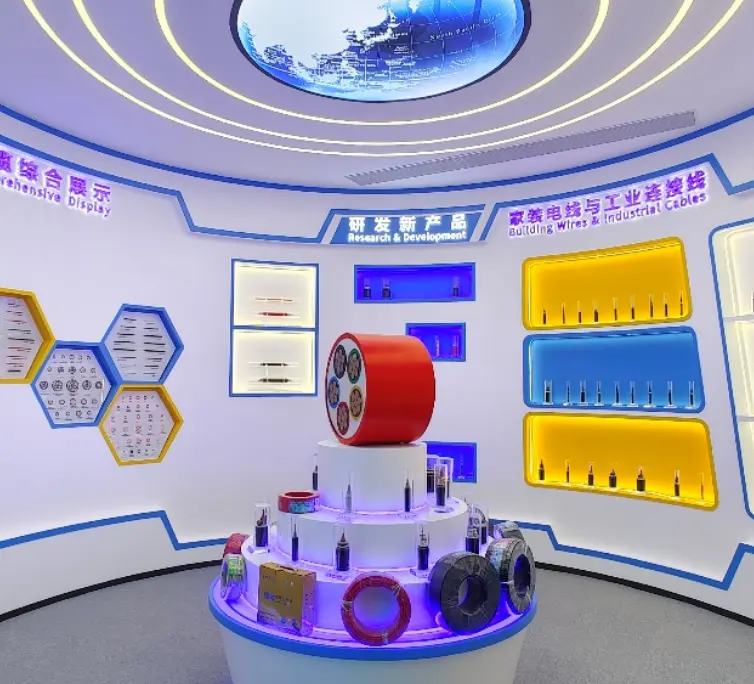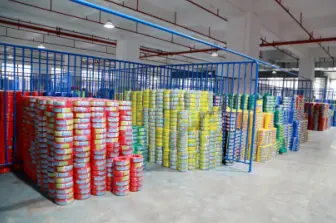Armoured Electrical Wires: A Unique Warrior in the Cable World
Armoured electrical wires, hailed as the "unique warrior" in the cable industry, can excel in various harsh environments and special requirements. These cables are mainly used in fields such as chemical industry, metallurgy, machinery manufacturing, power generation, and scientific experiments for tasks such as temperature measurement, signal transmission, and special heating. Among them, the usage of armored thermocouples is particularly prominent. So, in what aspects do these armoured electrical wires play a critical role? Next, let's explore their structural characteristics and diverse applications.
Structure and Characteristics of Armoured Electrical Wires
The conductor, as a key component that carries current in armoured electrical wires, is crucial in material selection. In reality, copper and aluminum are two commonly used conductor materials. Copper conductors, with their excellent electrical conductivity and high mechanical strength, play an indispensable role in high-load and long-distance power transmission. Aluminum conductors, due to their lightweight characteristics, occupy a place in medium-low load and short-distance transmission scenarios.
The insulation layer plays a vital role in armoured electrical wires; it is responsible for isolating the conductor from other metal parts, thus preventing potential failures like current leakage and short circuits. Common insulation materials such as polyethylene (PE), cross-linked polyethylene (XLPE), and cross-linked polyvinyl chloride (XLPE) can effectively reduce current loss and interference due to their excellent electrical performance and heat resistance.
Diverse Applications of Armoured Electrical Wires
The mechanical protective layer of armoured electrical wires has broad applicability, allowing easy installation to cables of various structures. This design aims to enhance the cable's mechanical strength and its ability to resist corrosion, making it particularly suitable for areas prone to mechanical damage and corrosion. Regardless of the installation method, armoured electrical wires can demonstrate excellent adaptability, especially in direct burial in rocky areas.
Armoured electrical wires are mainly used for the fixed laying of power cables, which means they are basically immobile once fixed in a certain position, and their function is to transmit electric power.
In addition to transmitting electric power, armoured electrical wires have other advantages. Their armored layer not only enhances the tensile and compressive strength of the cables but also provides additional mechanical protection, thereby extending their service life.
Armoured electrical wires have excellent resistance to external forces, effectively preventing rodent bites and ensuring uninterrupted power transmission. Moreover, their larger bending radius makes them more durable. Additionally, the armored layer can be grounded, providing extra protection for the cables.
With their unique structure and superb performance, armoured electrical wires play a critical role in power transmission and industrial control fields. Their structure, including the conductor, insulation layer, and metal sheath, endows the cables with excellent interference resistance, stability, and safety. In terms of types and models, armoured electrical wires also offer a rich selection to meet different application needs. Whether in high-temperature, high-humidity, or corrosive environments, armoured electrical wires can work steadily, ensuring the reliability of power transmission and the precision of industrial control. Furthermore, their metal sheath design has excellent explosion-proof and fire-proof performance, safeguarding safe production. Therefore, armoured electrical wires have become an indispensable important component in the power and industrial fields.
Latest News & Blog
 English
English  français
français  Deutsch
Deutsch  العربية
العربية  tiếng việt
tiếng việt  ไทย
ไทย  čeština
čeština  Indonesia
Indonesia  Eesti
Eesti  български
български  slovenčina
slovenčina 



